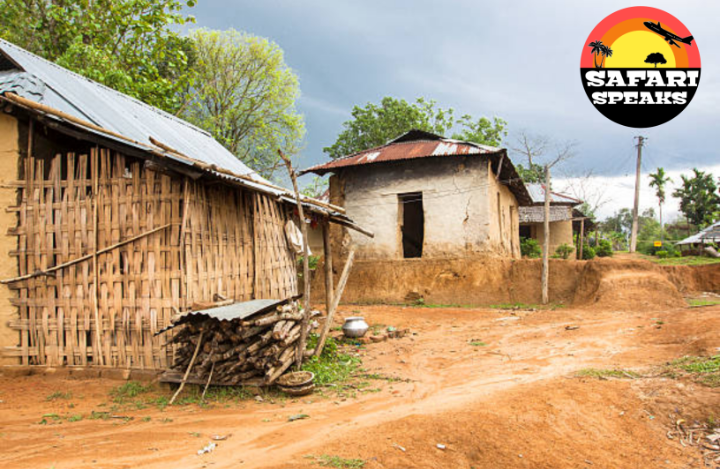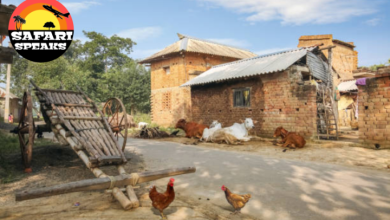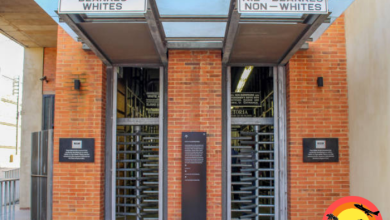How Burial Ceremony Was Organized In Aguluezechukwu

It has been a long-standing history, and knowing how Burial Ceremony was organized in Aguluezechukwu will be necessary to better preserve our heritage and culture. Long before Christianity was introduced in Aguluezechukwu, it was believed that if a person dies, the spirit would go to the spirit land if they had lived a good life and did not owe in other family members’ burials. It was also believed that if the dead person was not accorded a befitting burial ceremony, the spirit would be wandering in the wilderness.
It would not find rest because the spirits of the persons who died before and were given proper burial ceremonies would not be allowed the spirit of that person to join them in the spirit land until a burial ceremony for such a person might have been performed and cleansing sacrifices made. It was also believed that when the dead person was alive, the deceased partook in the activities, foods and drinks used for the burial ceremonies of other people. It was also believed that all those things that the deceased took part in eating and drinking must be paid for by those who have been left behind. If such a person made trouble during the burials of other people when alive, the children would be made to suffer for those misdeeds.
In those early days, revenge attitudes prevailed – Tit for tat’. The more influential people victimise and oppress ordinary men and women. The people were guided by the visions of fortune tellers who were taken to be very close to the spirits. Those fortune tellers were said to be hearing spirits and they interpreted what the spirits said to people. That time fortune tellers were many in the town. It was believed that any person who was not accorded a good customary burial ceremony would not re-incarnate. It was also believed that all the people who lived a bad life and were not accorded customary burial rites were not to be mentioned if a fortune teller was invited to announce who re-incarnated a child. Their names would not be mentioned in any of the four sticks to be used for balloting, in determining who re-incarnated a child.
The names of the good people mostly relatives who have lived and died well would be represented in sticks for the balloting known as “ika ogu”. When the sticks are presented to the fortune teller, they would select one stick. The name of the person attached to the stick would be taken as the person who re-incarnated such a child.
The above reasons made people try to make the customary burial ceremony of the father or mother and other relations well or grand to make them reach the spirit land and be qualified for reincarnation. Christians take such a ceremony as a memorial service. What a dead man needs is prayers from the living Christians.
The customary burial ceremony follows the sequence of deaths that is, the way they died. One does not bypass any of the deceased to hold a funeral ceremony for the other, instead of doing that -possibly because of financial constraints – you can scale down the expenses. This is called ‘ibu olo-o‘. In such a case, a goat (she-goat) would be brought and presented to the member of the family. The members would pray and slaughter the goat, the dead person is regarded as having been accorded a burial ceremony. The traditional worshippers accept such practice as a genuine burial ceremony and such a dead person is fully respected.
Christians do not discriminate in their burial ceremony. To them, both the small-scale ceremony (ibu oloo) and the large-scale ceremony have the same significance. Whichever way it is done does not affect the final judgement the dead person has to undergo before God.
How Burial Ceremony Was Organized In Aguluezechukwu
Death has always been a sad event. In the olden days, if a man, the head of a family dies, it was customary to send the news to the immediate relations and in-laws, far and near, to tell them of the death of such a person. Informing the relatives and in-laws was a task that must be done in time and to the rightful relations. All other people would be attracted by loud noise. Yelling would be much better if the dead were of good character when he was alive. People would be crying, recounting the good the man did when he was alive.
The corpse would be washed and dressed. It will be lying in state for sympathizers and all visitors to see. The bereaved members would show where to dig the grave. Sympathizers will be coming some with clothes and wine. When the grave was dug, the wife or wives and all the children would be called to see the corpse for the last time. The relations would give the corpse a final dressing and would get it ready for burial, There were no coffins. Bamboo and mats were used.
The young men in the family, the in-laws, few friends and neighbours would carry the corpse near to the grave. Before putting the corpse inside the grave there would be some ceremonies. oration by the elderly men, If the dead was brave during his lifetime. a ram would be slaughtered and the blood dropped into his eyes by a titled person.
In other cases, a cock would be killed and the blood dropped in the eyes. The oldest man in the family group would recount before the corpse (oration) what the dead would do for them in the spirit land and what he would avoid. Lastly, he would be told to revenge if his death was caused by a man or woman but if his death was caused by God, he should go peacefully and answer his God. This served as oration, after that the corpse would be laid in the grave and covered very well with sand.




